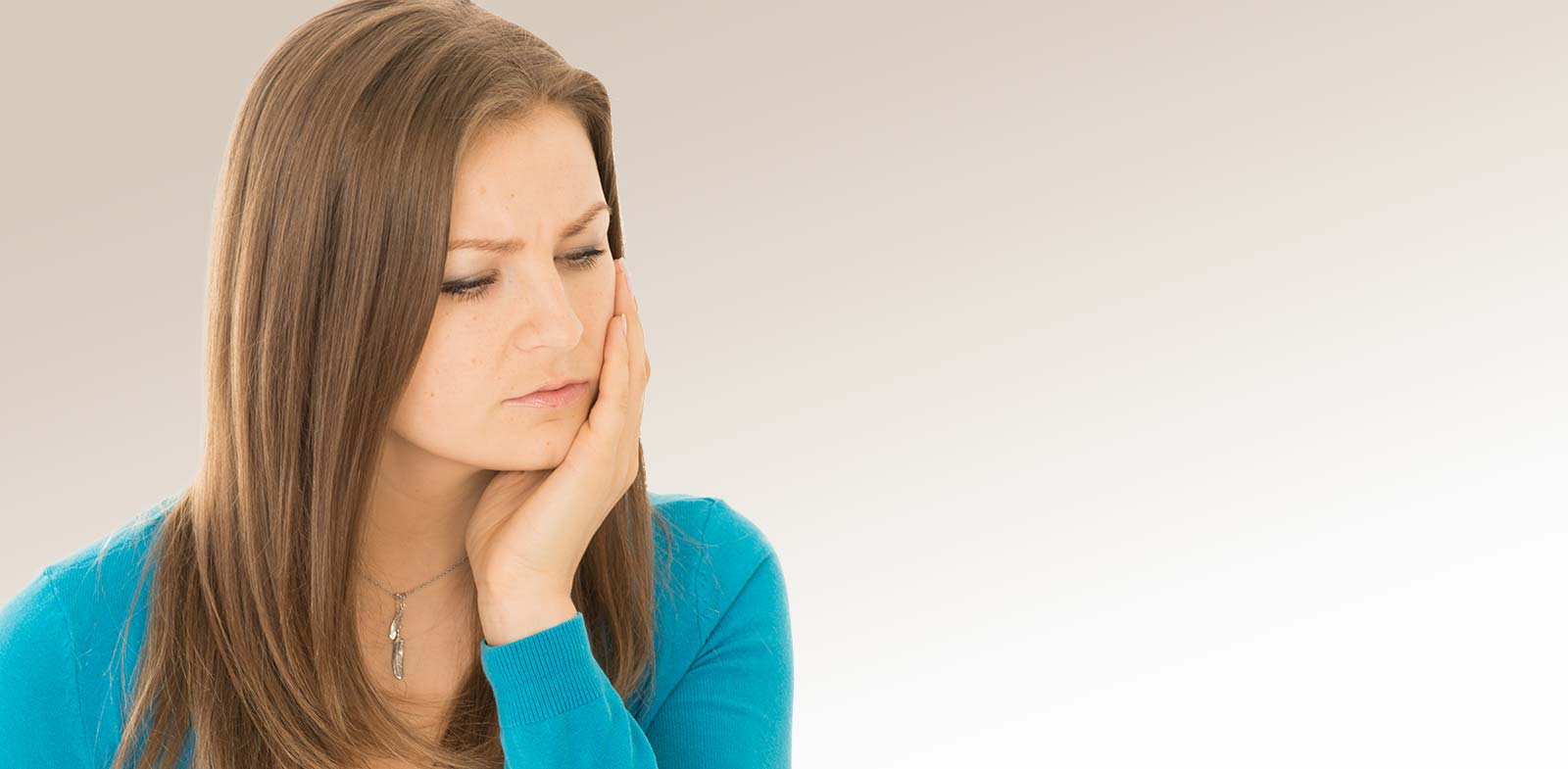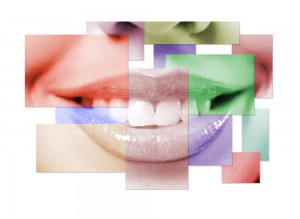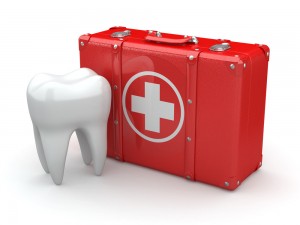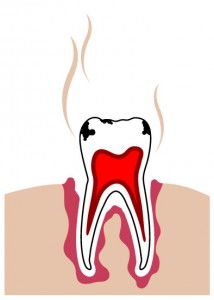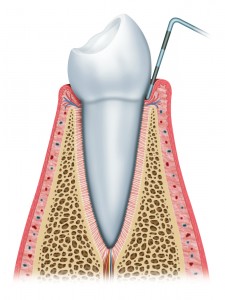
Gum disease is an oral condition often caused by poor oral hygiene, genetic predispositions or medical illness. It manifests itself with swollen gums and inflammation of the oral tissues. If left untreated, it can lead to premature tooth loss, medical complications and infections of several organs within the body.
The Causes of Gum Disease
Several factors can affect the health of the gums and teeth. The most common reasons are as follow:
1. Poor Oral Hygiene – It is the leading cause for gum disease. Improper oral habits, along with sporadic care at home and lack of professional cleanings, result in excessive amounts of plaque and tartar accumulations and harboring of bacteria.
2. Poor Nutrition – Diets high in carbohydrates and sugar accelerate the microbial formations in the mouth often affecting the health of the gums as well as the tooth structure and may lead to rampant decay.
3. Medications – Medically compromised patients are frequently administered drugs that produce several side effects including deterioration of the positive oral flora. Continue reading →
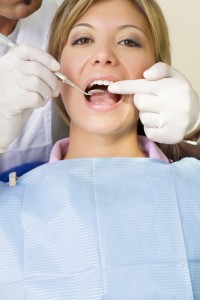
Every time you leave the dentist, you are encouraged to schedule a six month appointment; however, you may be one of the many people who avoid going to the dentist regularly, if at all. There are many reasons why people avoid the dentist, and none of them are beneficial for your dental hygiene. It is important that you always keep your gums and teeth healthy and clean. The Center for Disease Control and Prevention states that one out of seven adults living in the United States have untreated tooth decay and gum disease. Even with statistics such as these, many people will avoid visiting the dentist, for various reasons.
Fear
The most common reason why people avoid the dentist is due to fear. You may be afraid of being reprimanded by your dentist. If you have chosen a friendly dentist, he will always make you feel comfortable, regardless if you have missed appointments or not. Keep in mind that when your oral care provider goes over the reasons why you should not skip out on appointments, this is in your best interest. Continue reading →
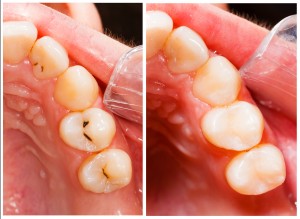
Practicing good dental hygiene does not have to be difficult. Forming good habits now will give you a lifetime of healthy teeth and gums. This article will give you tips to help you prevent tooth decay and cavities.
Brushing and Rinsing
Clean your teeth with either floss or an interdental cleaner every night. After flossing, brush your teeth with fluoride-containing toothpaste first thing in the morning and before you go to bed. Ideally, you should brush after every meal. If you can’t get away to brush your teeth, flush out your mouth with water after you eat.
Every person should rinse their mouth with mouthwash at least twice a day. To prevent cavities, your dentist may recommend that you start using a rinse that contains fluoride.
Eating and Drinking
When you drink a beverage that is not water, the bacteria in your mouth makes acid that can wreak havoc on your tooth enamel. Avoid excessive snacking and drinking throughout the day. Snacking and drinking sugary beverages can endanger the health of your teeth. Continue reading →
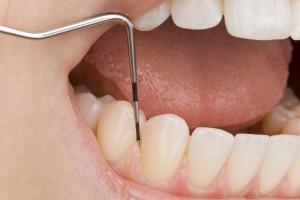
Most people brush their teeth regularly and floss occasionally, feeling that is all they need for good dental health. However, that is not exactly the best practice to ensure all of the mouth tissues will be fine. Gum disease is a growing problem that starts with inflammation but can lead to severe results, including tooth loss. Here are some of the common reasons so many people are experiencing gum disease.
Sugary foods and acidic beverages.
Food product labels often include sugar even in foods that are not necessarily sweet. Sugar consumption can climb to ten pounds or more per person every year. As a substance that leaves a sticky residue on teeth and gums, sugar contributes to the development of plaque, which, without brushing or rinsing, leads to inflammation and tooth decay. Acidic beverages like soda can erode teeth and irritate gum tissues over time, leading to serious health issues eventually. Continue reading →

Chipped and broken teeth are among the most common issues we see in patients at our Roseville dental practice. Although your teeth are covered by some of the strongest minerals in the body, they do have their limits. Biting down on hard or crunchy food items can often cause a tooth to chip or break completely. It’s important to attend to a chipped tooth as promptly as possible. Not only does it mar the beauty of your smile, it can also lead to further tooth damage and the possible loss of the entire tooth.
So, at the first sign that you have chipped a tooth, contact our office for an appointment at your earliest convenience. Then do the following things in the meantime in order to help minimize the damage and discomfort you are experiencing.
(1) Rinse out your mouth with a solution of warm water mixed with half a teaspoon of salt in order to ensure that no broken pieces remain that can irritate your gums or tongue. If you are experiencing pain, take an over the counter pain reliever containing acetaminophen.
(2) If the chip causes a jagged or sharp edge, invest in some sugarless chewing gum or wax paraffin from the drugstore. Use either of these substances to form a temporary covering over the break to prevent further mouth irritation. Continue reading →
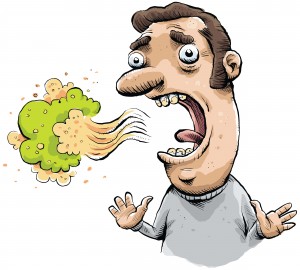
It happens every morning. The dreaded alarm goes off, offering the start of a brand new day. You hit snooze– that should buy you a little time. In an act of ultimate procrastination, you stew around in your warm bed in a race to soak up its last bits of comfort before the impending bell tolls for the second time, this time commanding you to get up. Could there be a more aggressive way to wake someone up in the morning? You take a deep, anticipatory breath and are instantly reminded that there could be. Your exhale has lingered, and it taunts you into shamefully covering your mouth in order to spare the room’s fresh air and/or your sleeping partner. You spring to your feet and head straight to the bathroom faucet to remedy the force that has both rivaled your alarm clock and shocked you into a full state of consciousness– your morning breath.
To put it simply, morning breath is nothing more than bad breath, or halitosis. Halitosis is a common problem with a variety of causes, ranging from simple diet and lifestyle choices to more complex oral health and medical conditions.[1] Chronic issues with halitosis are not very common. Still, almost all of us wake up with some type of bad breath. But why in the morning? Continue reading →
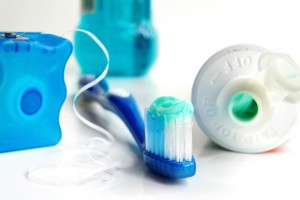
Choosing a type of toothpaste for your family can be confusing with all the different types of toothpaste available today. Understanding how different types of toothpastes work and what ingredients to look for can help you when sorting through the numerous options on store shelves.
Most toothpaste contains fluoride, and with good reason: Fluoride strengthens tooth enamel and fights cavities and tooth decay. The American Dental Association recommends brushing twice a day with fluoride toothpaste. Almost without exception, everyone should use fluoride toothpaste. There are very rare cases of people experiencing an allergic reaction to fluoride, but the majority of people of all ages will benefit from fluoride.
Some types of toothpaste fulfill a specific need or desire, such as whitening toothpaste or toothpaste for sensitive teeth. Whitening toothpaste usually contains abrasives that scrub stains away, rather than bleach or other whitening agents. According to WebMD, studies have found that these toothpastes are gentle enough for everyday use and do not harm tooth enamel. Continue reading →

